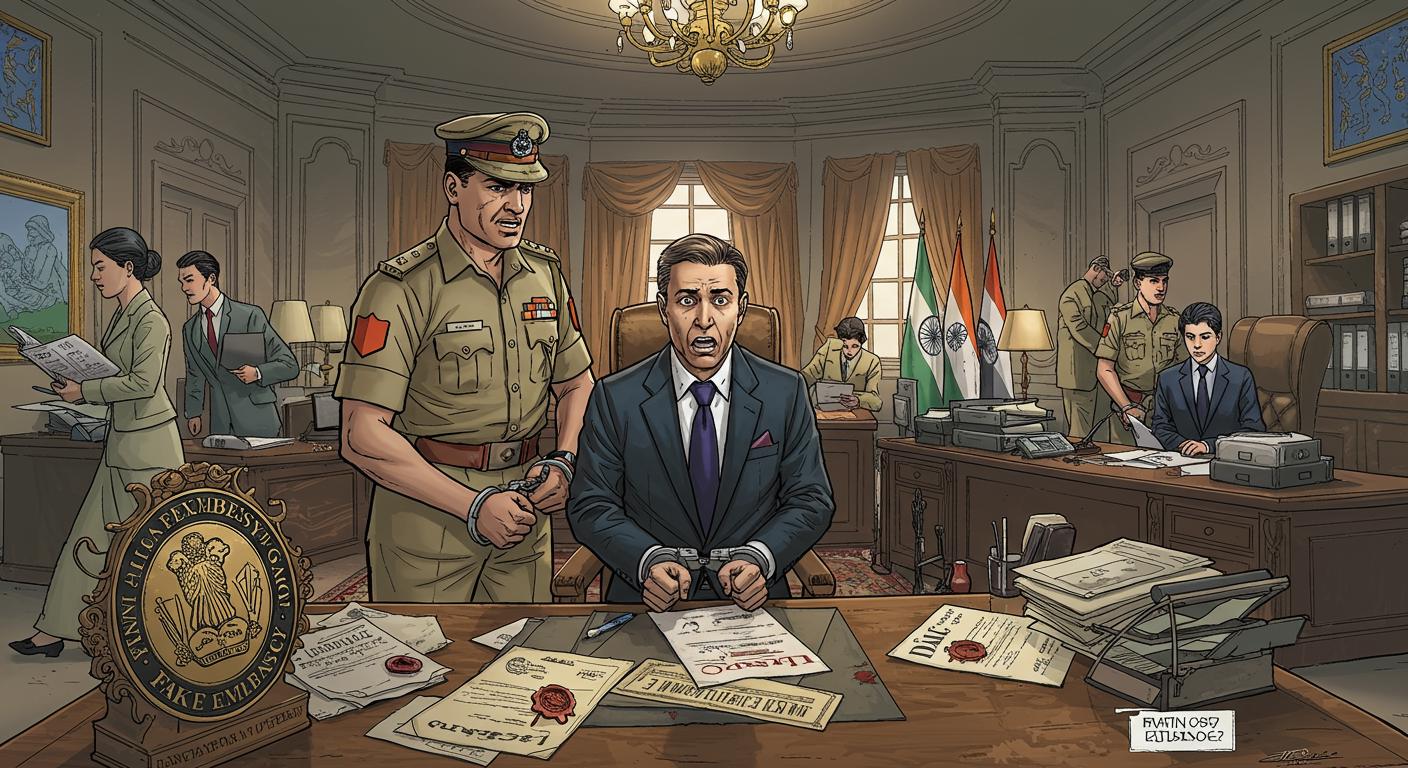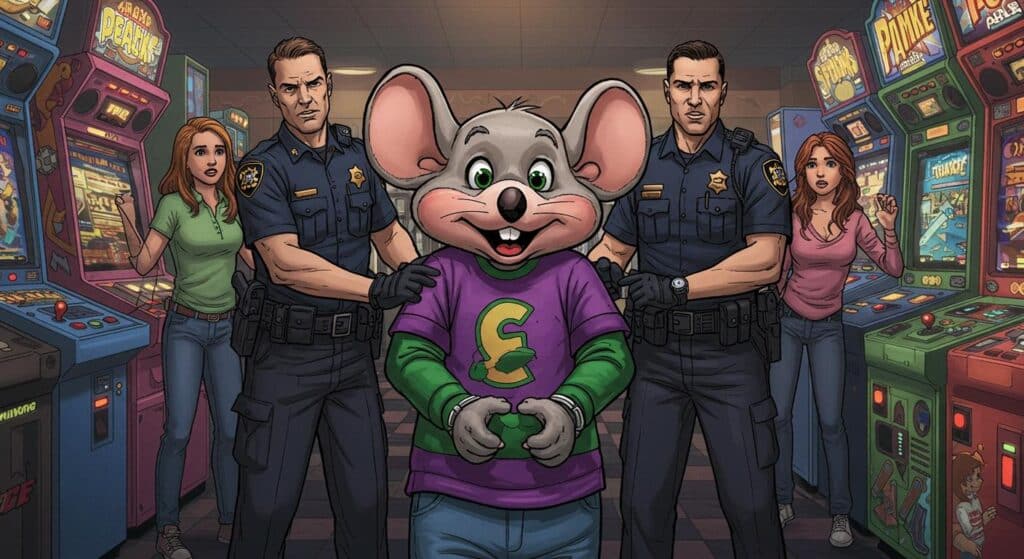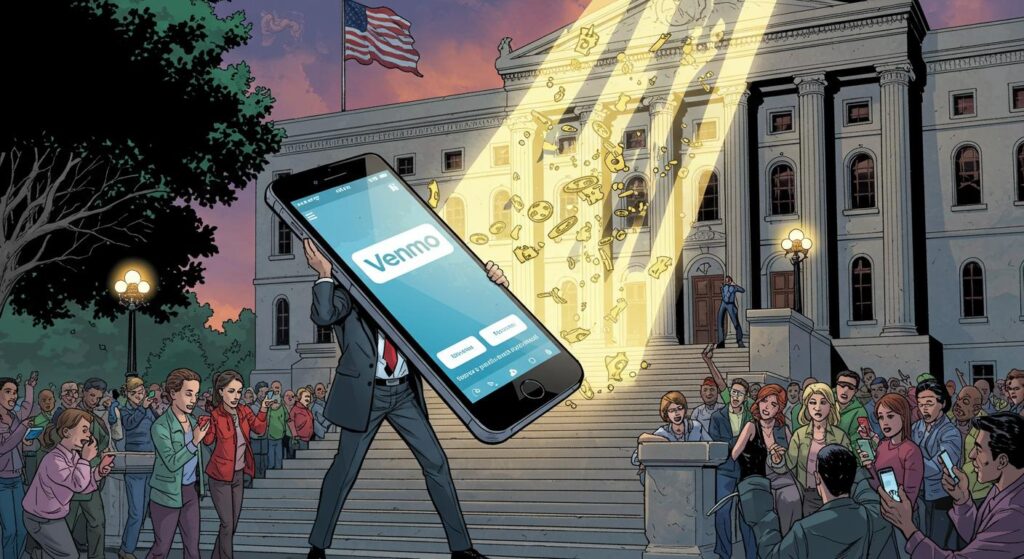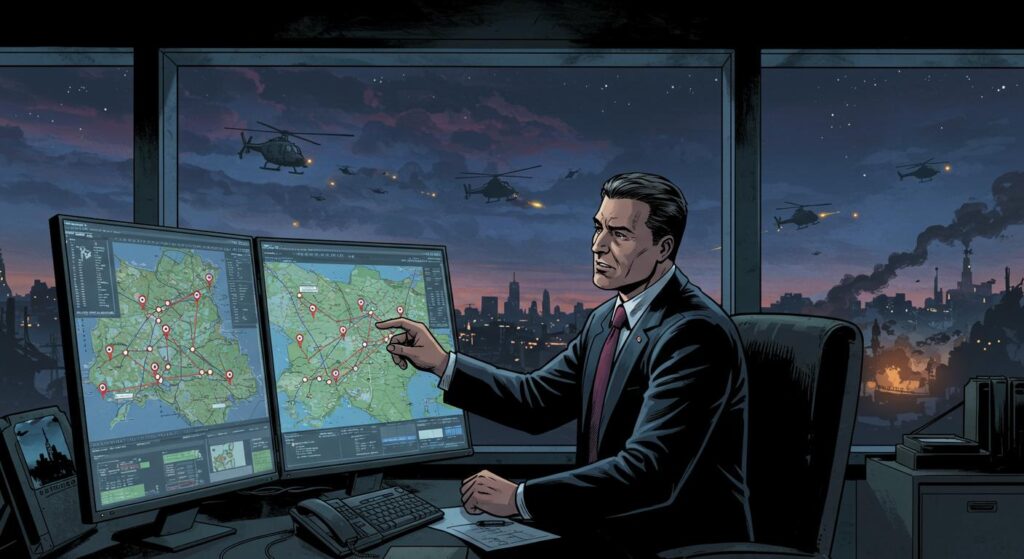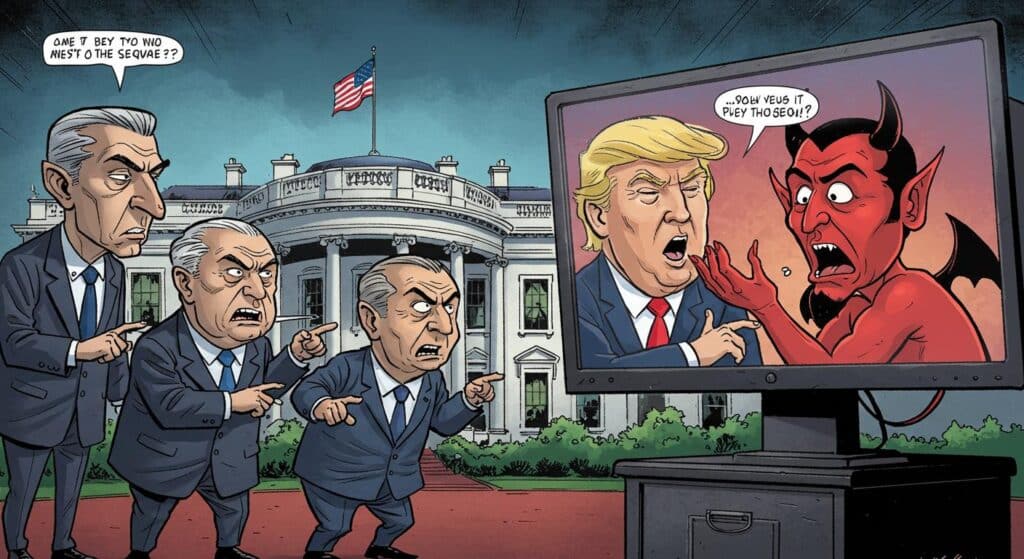Every so often, a story lands squarely in the Venn diagram of audacity and absurdity, and you just have to admire the sheer commitment involved. This week’s entry? An elaborate “embassy”—complete with luxury vehicles, international flags, and its own imaginary foreign policy—operating out of a rented house near Delhi. All without the pesky burden of representing a real country.
As detailed by The Guardian, Indian authorities recently arrested Harshvardhan Jain, 47, for allegedly running a full-service fake embassy operation in the outskirts of the capital. According to police statements cited by The Guardian, Jain impersonated an ambassador and promised hopeful clients overseas employment for a fee, all under the prestigious banners of imaginary sovereignties like “Seborga” and “Westarctica”—micro-nations that are easier to find in internet forums than on any recognized map.
The Accoutrements of Imaginary Statecraft
FOX5 San Diego reports that the spectacle didn’t stop at invented diplomatic credentials. Four luxury cars with fake diplomatic plates were parked outside Jain’s rented residence, which itself was liberally decorated with international flags. Within, investigators turned up a collection of doctored photographs in which Jain appears arm-in-arm with world leaders—a detail both outlets document—alongside forged seals purporting to represent India’s foreign ministry and nearly three dozen other countries. In the same sweep described by FOX5, police discovered a cash haul of nearly 4.5 million rupees (roughly $52,000) plus assorted foreign currencies.
These findings weren’t just a matter of someone printing the odd questionable certificate, either. As The Guardian points out, police also recovered fake official stamps and elaborate documentation, situating the operation closer to a one-stop diplomatic novelty shop than a run-of-the-mill scam. One wonders what visitors expected—an on-the-spot passport application, or perhaps a souvenir snow globe from the proud nation of Westarctica?
A Dash of Money Laundering, a Sprig of International Relations
The Guardian goes further to note that Jain’s alleged activities also included laundering money through shell companies abroad, a step up from mere paperwork into the world of creative international finance. Charges stacked up by police, as reported by both outlets, include forgery, impersonation, and possession of fake documents. Adding to the performance, Jain told clients he was acting as an adviser or ambassador for various entities, real—or, more frequently, not so real—according to details provided by both news organizations.
Neither Jain nor his lawyer could be reached for comment, with no communication coming from the embassy’s, let’s say, “press office.”
The Allure of the Not-Quite-Recognized
It’s tempting to brush this episode off as yet another scammer caught in the act. However, the popularity of quasi-states like Seborga and Westarctica begs the question, as both The Guardian and FOX5 San Diego outline, why such inventions seem plausible to some. With their own trappings—slick websites, elaborate histories, and, in Jain’s case, a meticulously recreated bureaucratic universe—they manage to carry just enough veneer of legitimacy to attract hopeful visa seekers.
Was it the outward signs—the cars, the photo ops, the multicolored flags—that convinced people they were only a stamp away from a new life? Or could it be that the wish to cross borders, literally and figuratively, is strong enough that people will suspend disbelief for the right price? Both articles emphasize the ever-present allure of overseas opportunity, a promise so compelling that the finer points of national legitimacy can sometimes be overlooked.
Summing Up the Embassytainment
Jain’s alleged embassy operation, as the reporting makes clear, occupies a space between farce and tragedy: an oddball assembly of luxury cars, DIY diplomacy, and manufactured prestige that speaks to the enduring human hope for better prospects. Officials now face the painstaking task of untangling the finances and explaining to future recruits just how many ways there are for “ambassadors” to not actually be ambassadors.
After all this, you have to wonder—just how many other flag-festooned living rooms are out there, quietly hosting the next aspiring representative of a country that only exists in PowerPoint slides? Or perhaps, as noted earlier in The Guardian’s coverage, this particular strain of entrepreneurial internationalism will one day fade—until the next “embassy” pops up in a neighborhood near you.

